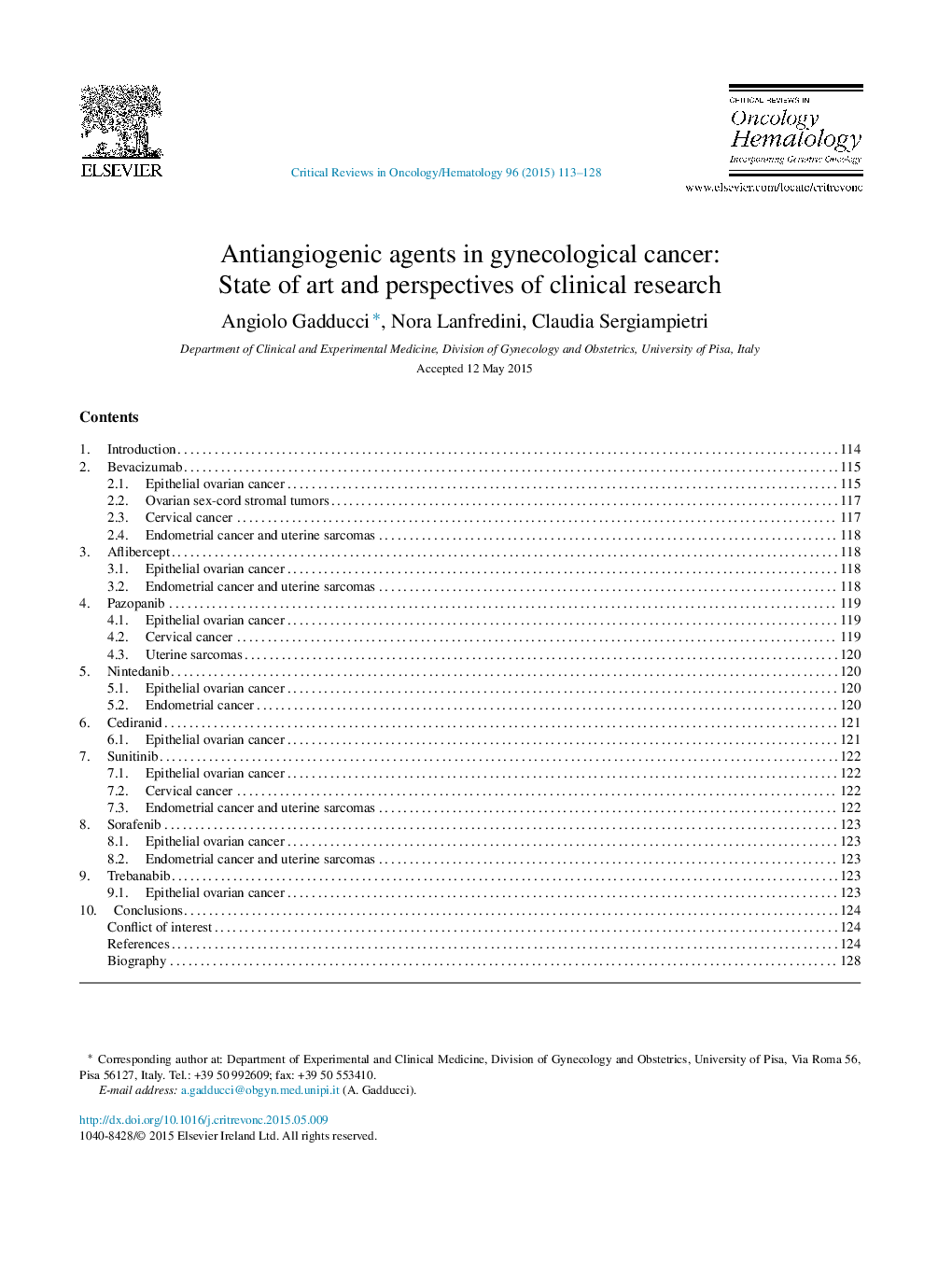| کد مقاله | کد نشریه | سال انتشار | مقاله انگلیسی | نسخه تمام متن |
|---|---|---|---|---|
| 3328642 | 1212329 | 2015 | 16 صفحه PDF | دانلود رایگان |
• A wide review of angiogenic agents tested in ovarian, endometrial and cervical cancer.
• Bevacizumab associated with chemotherapy is a therapeutic option for ovarian cancer.
• Anti-angiogenesis is target for recurrent cervical or endometrial cancer.
Vascular endothelial growth factor [VEGF] pathway, which plays a key role in angiogenesis, may be blocked by either extracellular interference with VEGF itself (bevacizumab [BEV] or aflibercept), or intracytoplasmic inhibition of VEGF receptor (pazopanib, nintedanib, cediranid, sunitinib and sorafenib). An alternative approach is represented by trebananib, a fusion protein that prevents the interaction of angiopoietin [Ang]-1 and Ang-2 with Tie2 receptor on vascular endothelium. The combination of antiangiogenic agents, especially BEV, and chemotherapy is a rational therapeutic option for primary or recurrent ovarian carcinoma. However, it will be difficult to accept that it represents the new standard treatment, until biological characterization of ovarian carcinoma has not identified subsets of tumors with different responsiveness to BEV. Anti-angiogenesis is an interesting target also for recurrent cervical or endometrial cancer, but nowadays the use of anti-angiogenic agents in these malignancies should be reserved to patients enrolled in clinical trials.
Journal: Critical Reviews in Oncology/Hematology - Volume 96, Issue 1, October 2015, Pages 113–128
